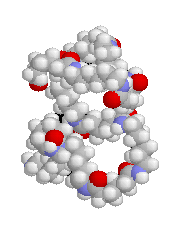Exploring the Varied Applications and Advantages of Polymers in Different Industries
Polymers, with their varied variety of properties and capabilities, have become vital in different sectors, each enjoying special gain from their application. Polymers. From enhancing security and performance in the vehicle field to reinventing clinical tools in the medical care market, polymers play an essential function. Their green nature is modifying the landscape of sustainability methods. As we dig into the midsts of polymers in electronic devices, we uncover cutting-edge technologies, while their architectural stability transforms the world of building and infrastructure. The prevalent influence of polymers across sectors is a testament to their versatility and flexibility, shaping the future of countless fields.
Automotive Industry Applications
Polymers play a crucial role in enhancing the efficiency and toughness of various components within the auto industry. These versatile products are extensively made use of in the manufacturing of different components, varying from interior parts to under-the-hood applications. One popular usage of polymers in the automotive market remains in the manufacturing of lightweight elements. By changing typical metal get rid of polymer-based choices, vehicles can achieve enhanced gas performance without compromising on strength or security.

Healthcare Industry Advantages
In various healthcare applications, the advantages of utilizing polymers are widely recognized for their diverse series of useful residential properties. Polymers play a crucial role in the medical care sector as a result of their convenience, biocompatibility, and cost-effectiveness. Among the key benefits of polymers in health care is their capability to be tailored to specific requirements, such as adaptability, durability, and biodegradability, making them ideal for a wide variety of clinical applications.
Polymer-based products are thoroughly utilized in medical gadgets, such as catheters, implants, prosthetics, and drug delivery systems, because of their biocompatibility and capability to simulate natural tissues. These materials can reduce the threat of sensitive responses or rejections, boosting individual security and outcomes. In addition, polymers are lightweight, making them suitable for wearable clinical gadgets and guaranteeing person convenience.
Additionally, polymers make it possible for the advancement of check these guys out cutting-edge treatment approaches, such as hydrogels for tissue engineering and nanocomposites for targeted medicine delivery. Their simplicity of handling and sterilization makes them crucial for maintaining high requirements of health in healthcare news setups. Overall, the diverse benefits of polymers add considerably to innovations in medical innovation and person treatment.
Environmental Benefits of Polymers

Moreover, polymers can add to power financial savings as a result of their light-weight nature. In industries such as transportation, lightweight polymer materials can help decrease fuel usage and greenhouse gas discharges. Furthermore, polymers can allow the advancement of energy-efficient products such as insulation materials that improve energy conservation in structures.
Moreover, polymers play an important function in minimizing water contamination. The usage of polymer-based filtering systems can efficiently remove pollutants and impurities from wastewater, guarding water resources and communities. Overall, the ecological advantages of polymers make them useful possessions in advertising sustainability and environmentally friendly practices throughout different industries.
Polymers in Electronics and Modern Technology
Thinking about the raising need for innovative and lasting options in modern sectors, the combination of advanced polymer modern technologies in the realm of electronic devices and innovation has arised as a critical approach for driving effectiveness and efficiency. Polymers have actually reinvented the electronic devices industry by enabling the production of lighter, extra versatile, and durable electronic gadgets. From this contact form mobile phones to clinical tools, polymers play an essential role in enhancing product style and performance.
One considerable benefit of polymers in electronic devices is their insulating buildings, which assist shield delicate electronic components from ecological factors and electrical disturbance. Furthermore, polymers are crucial in the development of adaptable displays, wearable innovation, and published electronics, providing unlimited opportunities for creating smart and interconnected devices.
Additionally, making use of polymers in electronic product packaging has resulted in improvements in miniaturization and thermal management, boosting the general efficiency and integrity of digital systems. As technology remains to advance, the convenience and adaptability of polymers will certainly drive better technology in the electronics sector, shaping the future of modern technology.
Duty of Polymers in Construction and Facilities
The integration of sophisticated polymer materials in building and framework tasks has actually revolutionized the means frameworks are designed and constructed in contemporary times. Polymers offer many advantages in the building and construction sector as a result of their adaptability, resilience, and cost-effectiveness. One crucial function of polymers in construction is their use in coverings and sealants, supplying security versus environmental factors such as wetness, UV radiation, and rust. Furthermore, polymers are utilized in the manufacturing of lightweight and high-strength composite products, improving the architectural stability of buildings while decreasing general weight.
In addition, polymers play a vital function in sustainable building practices by allowing the growth of energy-efficient frameworks. Insulating products made from polymers assist regulate interior temperature levels, decreasing the demand for heating and cooling down systems and eventually decreasing power usage - Polymers.
Final Thought
In conclusion, polymers play a vital function in different industries such as vehicle, health care, environmental, electronics, and construction. From enhancing gas efficiency in automobiles to boosting medical tools, polymers offer numerous advantages.